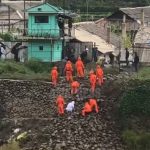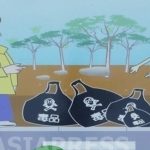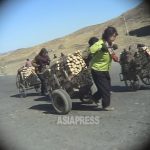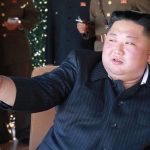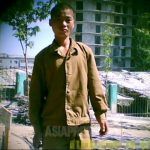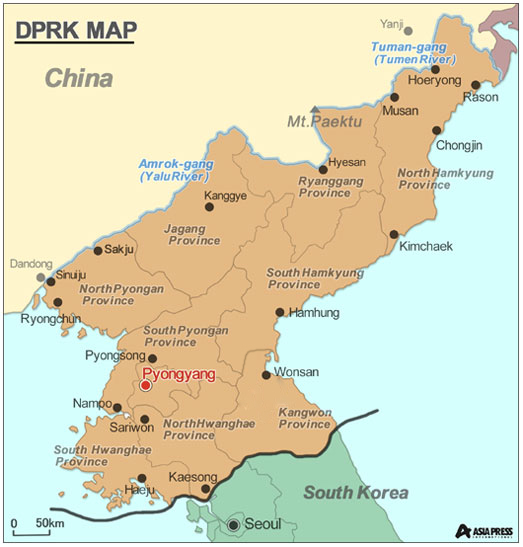
◆ The situation in the trading city of Hyesan
With the Yalu River flowing between them, the city of Hyesan sits across from Changbai City in China’s Jilin Province. This close proximity has benefited Hyesan greatly, with the city enjoying active trade with China. In terms of economic prosperity, the city ranks only behind Pyongyang and is followed by the special economic zone of Rason and the larger border city of Sinuiju.
A reporting partner, who investigated the real estate situation of downtown Hyesan City, said, “Wealthy people have been hit by the sanctions, so there are few apartments selling. Before the sanctions were tightened, apartments that were worth 34 million won were being sold for about 25 million won. High-end apartments on the fifth and sixth floors of buildings, which were being sold for about 55 million won, are no longer put up for sale, simply as there are no buyers showing up. Meanwhile, previously-owned, single story houses, in front of the market in Hyekang neighborhood, used to cost between 680 thousand and a million won up until 3 years ago, but now go for only 500 to 680 thousand won.”
As for why prices have gone down, the reporting partner cited poor trade under the sanctions as the first reason. In addition, privatel smuggling, which had been thriving, has been totally blocked due to strengthened crackdowns. With all of this having an effect, the excessive supply of apartments in Hyesan has led to a drop in prices over recent years.
The reporting partner continued, “In the city of Hyesan, where Chinese trade has grown so much, many apartments have been constructed over the past few years in cooperation with the state-operated Urban Construction and Trade Corporation. Funds for the construction projects were often raised by North Korea’s emerging class of wealthy elites, called the ‘donju’ or, instead, by Chinese companies. The first and second floors of the buildings would be dedicated to shops run by trading companies and the upper floors would be for residences. The authorities are now aiming to gain a profit from refurbished, old apartments in the city’s Wiyeon district but even these are not selling well.”
◆ The situation in Hoeryong City
A similar trend is evident in Hoeryong city. A reporting partner in the city said, “Before the sanctions, in 2016, prices of new, 80 square-meter apartments were between 120 and 170 thousand won. But the value of all apartments have fallen by 30%. There is still the odd sale every and then though.”
Barring a few exceptions, all houses in North Korea are state-owned. A black market for houses was first spawned in the 1990’s, though, when the death toll of the famine left houses standing empty. Residential registration cards, also known as admission certificates, were bought and sold by private citizens, as the state’s crippled finances made it impossible to maintain the old system of state-provided housing.
Although the private sale of apartments is still, technically, illegal, North Korea’s emerging wealthy class and the trading companies they operate have been able to build apartment buildings under the banner of state institutions and directly sell residence registration cards. After making sales, the companies pay back a small percentage of the profits to the state.
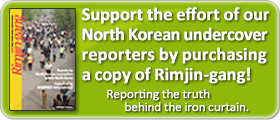 Editor’s notes on North Korean reporters
Editor’s notes on North Korean reporters
ALL REPORTS >>>
ARCHIVE(pdf) >>
DPRK MAP >>
